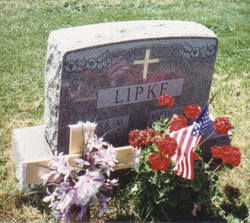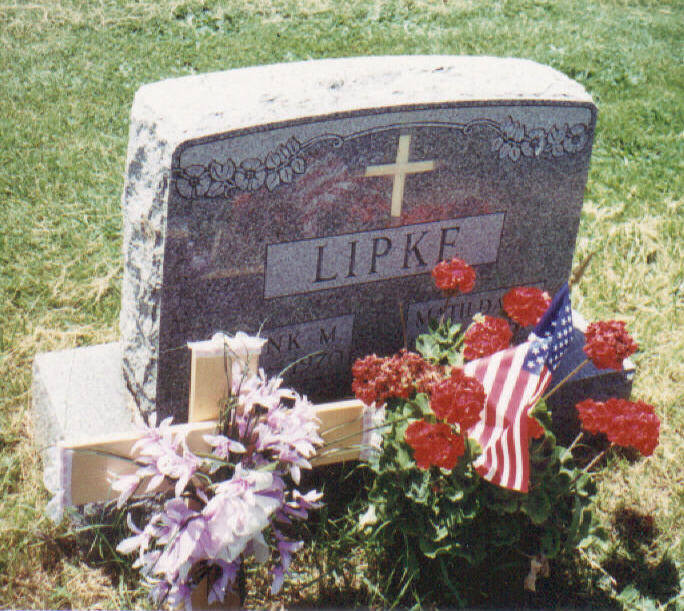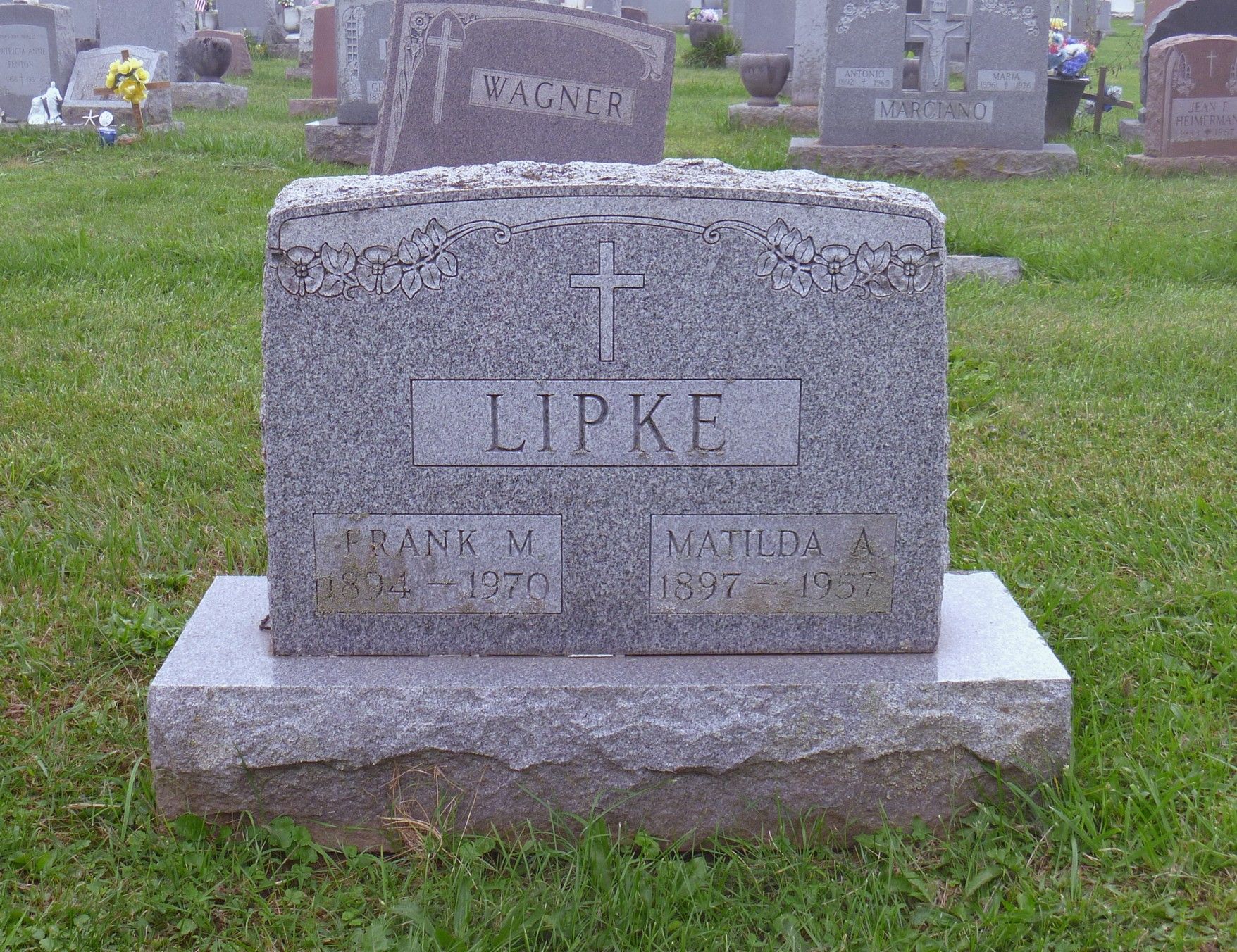He enlisted in the U.S. Army at Fort Slocum (David's Island, Long Island Sound, New York) on September 30, 1914 at the age of 20 years and five months.
Frank served with Co. I, 19th Infantry at Fort Sam Houston, San Antonio, Texas from November 19, 1914 until at least May 2, 1917, when he was a sergeant. His unit's captain and supply sergeant were witnesses and character references on his naturalization petition filed in San Antonio, Texas on the latter date. He was at Fort Sam Huston at the same time Dwight D. Eisenhower had his first posting and met his wife Mamie there.
When war broke out Frank became a World War I veteran. He was made First Sergeant, Company L, 358th Infantry, U.S. Army, in February 1918. He was stationed at Camp Travis (a new training facility set up near Fort Sam Houston in San Antonio), in March 1918, from where he came on furlough to visit his parents at the farm. On June 7, 1918 he was granted U.S. citizenship in Texas under expedited and simplified rules passed by Congress on May 9, 1918 for aliens serving in the U.S. military. His division was sent overseas soon after, by the end of June, shipping out from Hoboken, New Jersey.
By December 1918 he had been promoted to corporal, and was wounded and in hospital, probably at U.S. Army Base Hospital #45, at Toul, France, after having served and been wounded on or around the first day (September 12, 1918) of the offensive push in the Battle of St. Mihiel. Another source says he was severely wounded on November 1, 1918, just days before the First World War ended on November 11, 1918.
The U.S. Army organizations he served with were: Co. I, 19th Infantry, to May 16, 1917; Co. I, 57th Infantry, to Sept. 5, 1917; Co. L, 358th Infantry, to Sept. 12, 1918; Casualty to Feb. 1, 1919; 4th Co., 152 Dep. Brig., to Apr. 8, 1919. Grades: Pvt1; Sgt 1 cl Feb. 1, 1916. Served overseas from June 20, 1918 to Nov. 22, 1918. Honorable discharge June 4, 1920 "by abolishment of R.A.R." [?]
After leaving the Army and returning home, he lived with his parents and younger brothers on the Lipke farm and worked as a "machinist" at the "lantern works" (1920-1926 Crouse-Hinds? or Dietz's?). On July 27, 1922 he married neighborhood girl Matilda A. Kohring, Assumption Church, Syracuse, NY. They would eventually have six children, and were members of the Taft Settlement Grange.
After their wedding, Frank and Tillie moved to Syracuse and lived on Hier Street between the years 1922 and 1926, where Frank was listed in the Syracuse city directories as a "gardener." In 1926 after his father died, his mother turned the Lipke farm over to him and he and his growing family moved back there from Syracuse, worked the farm, and sold their produce (strawberries, potatoes, cucumbers, green tomatos, carrots, string beans) at the North Side farmers' municipal market in Syracuse.
In August 1931, during the Depression, Frank ran a classified ad in the Syracuse Journal: "52-ACRE garden farm, Taft Settlement road, part or whole. More than I can handle. Frank Lipke."
By 1942 the U.S. government had appropriated the Lipke farm land for a World War II air base (which would later become Syracuse's Hancock International Airport, south of Taft Road). Frank and his family resided for a bit at 147 Robinson Street in Syracuse (while he worked at the Prosperity Company plant on Erie Boulevard East, maker of commerical laundry and dry-cleaning equipment). They then moved to Herbst Avenue in Syracuse, where they were living when Matilda died in 1957.
Frank's last address was 368 Ashdale Avenue in Syracuse. He died at the Syracuse Veterans Administration hospital after a short illness on April 21, 1970, his 76th birthday. He was survived by his six children and 21 grandchildren.
He enlisted in the U.S. Army at Fort Slocum (David's Island, Long Island Sound, New York) on September 30, 1914 at the age of 20 years and five months.
Frank served with Co. I, 19th Infantry at Fort Sam Houston, San Antonio, Texas from November 19, 1914 until at least May 2, 1917, when he was a sergeant. His unit's captain and supply sergeant were witnesses and character references on his naturalization petition filed in San Antonio, Texas on the latter date. He was at Fort Sam Huston at the same time Dwight D. Eisenhower had his first posting and met his wife Mamie there.
When war broke out Frank became a World War I veteran. He was made First Sergeant, Company L, 358th Infantry, U.S. Army, in February 1918. He was stationed at Camp Travis (a new training facility set up near Fort Sam Houston in San Antonio), in March 1918, from where he came on furlough to visit his parents at the farm. On June 7, 1918 he was granted U.S. citizenship in Texas under expedited and simplified rules passed by Congress on May 9, 1918 for aliens serving in the U.S. military. His division was sent overseas soon after, by the end of June, shipping out from Hoboken, New Jersey.
By December 1918 he had been promoted to corporal, and was wounded and in hospital, probably at U.S. Army Base Hospital #45, at Toul, France, after having served and been wounded on or around the first day (September 12, 1918) of the offensive push in the Battle of St. Mihiel. Another source says he was severely wounded on November 1, 1918, just days before the First World War ended on November 11, 1918.
The U.S. Army organizations he served with were: Co. I, 19th Infantry, to May 16, 1917; Co. I, 57th Infantry, to Sept. 5, 1917; Co. L, 358th Infantry, to Sept. 12, 1918; Casualty to Feb. 1, 1919; 4th Co., 152 Dep. Brig., to Apr. 8, 1919. Grades: Pvt1; Sgt 1 cl Feb. 1, 1916. Served overseas from June 20, 1918 to Nov. 22, 1918. Honorable discharge June 4, 1920 "by abolishment of R.A.R." [?]
After leaving the Army and returning home, he lived with his parents and younger brothers on the Lipke farm and worked as a "machinist" at the "lantern works" (1920-1926 Crouse-Hinds? or Dietz's?). On July 27, 1922 he married neighborhood girl Matilda A. Kohring, Assumption Church, Syracuse, NY. They would eventually have six children, and were members of the Taft Settlement Grange.
After their wedding, Frank and Tillie moved to Syracuse and lived on Hier Street between the years 1922 and 1926, where Frank was listed in the Syracuse city directories as a "gardener." In 1926 after his father died, his mother turned the Lipke farm over to him and he and his growing family moved back there from Syracuse, worked the farm, and sold their produce (strawberries, potatoes, cucumbers, green tomatos, carrots, string beans) at the North Side farmers' municipal market in Syracuse.
In August 1931, during the Depression, Frank ran a classified ad in the Syracuse Journal: "52-ACRE garden farm, Taft Settlement road, part or whole. More than I can handle. Frank Lipke."
By 1942 the U.S. government had appropriated the Lipke farm land for a World War II air base (which would later become Syracuse's Hancock International Airport, south of Taft Road). Frank and his family resided for a bit at 147 Robinson Street in Syracuse (while he worked at the Prosperity Company plant on Erie Boulevard East, maker of commerical laundry and dry-cleaning equipment). They then moved to Herbst Avenue in Syracuse, where they were living when Matilda died in 1957.
Frank's last address was 368 Ashdale Avenue in Syracuse. He died at the Syracuse Veterans Administration hospital after a short illness on April 21, 1970, his 76th birthday. He was survived by his six children and 21 grandchildren.
Inscription
LIPKE
Frank M.
1894 - 1970
Matilda A.
1897 - 1957
Family Members
Sponsored by Ancestry
Advertisement
Explore more
Sponsored by Ancestry
Advertisement

















